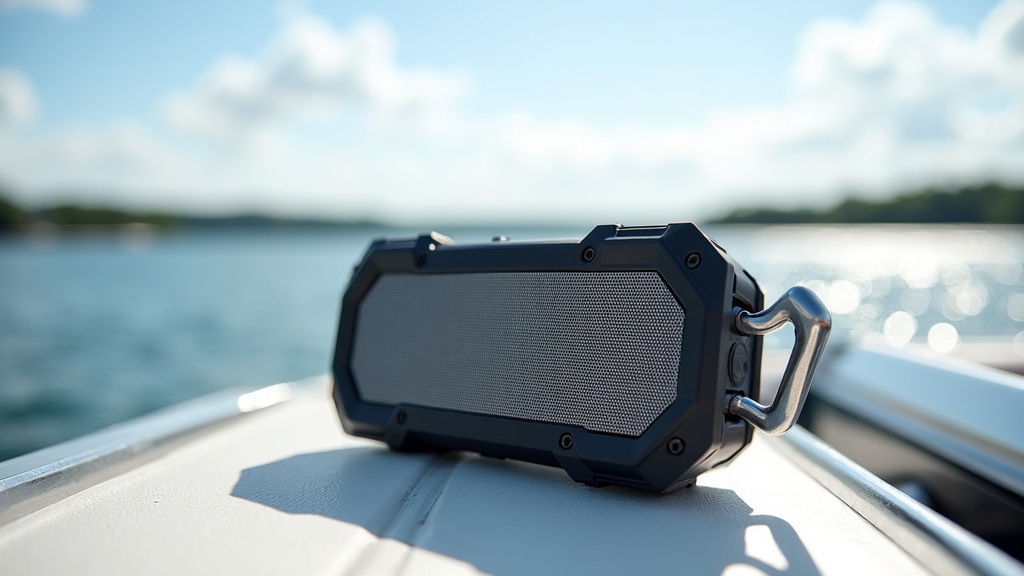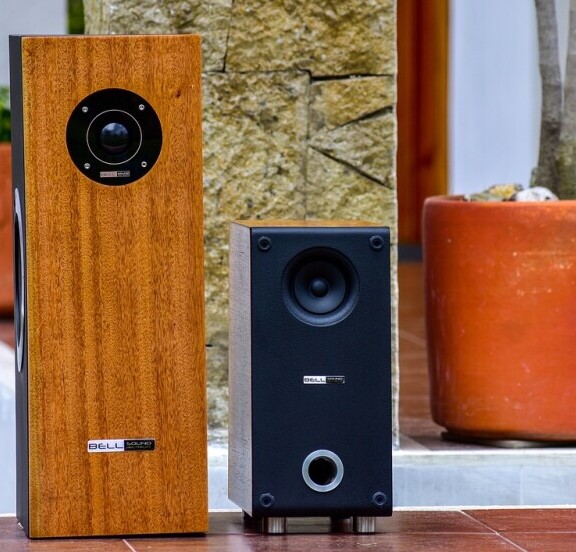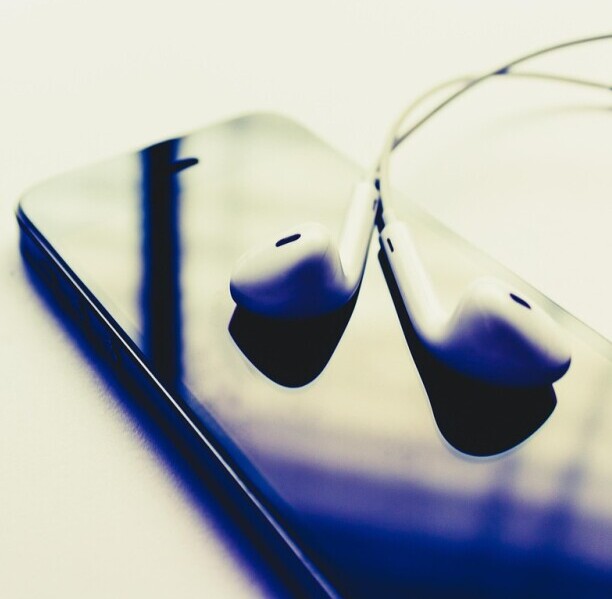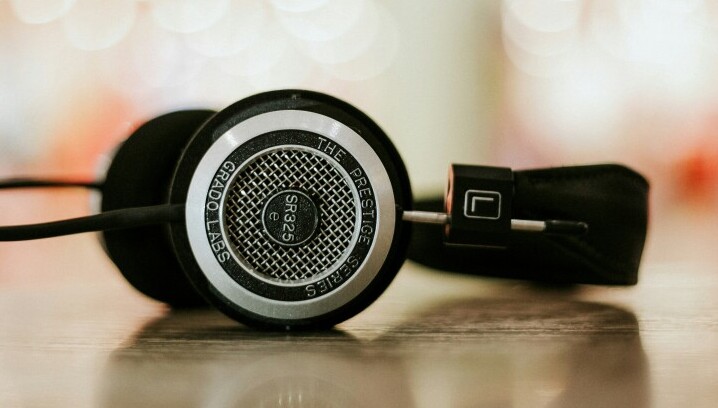
Bluetooth speakers and pontoon boats really do go hand in hand. There’s just something special about cruising across a lake or river, your favorite songs filling the air, without wires tying up your deck.
With so many speakers around, I’ve found that figuring out which one actually works best for boating life can be confusing.
In this guide, I’m breaking down what matters when choosing a Bluetooth speaker for pontoon boats, plus my personal take on the top models to keep your tunes floating with you all summer long.
*If you’re already shopping, I’ve linked my top pontoon-friendly Bluetooth speakers below so you can check current pricing and availability.
Check today’s best Bluetooth speakers for pontoon boats
Why a Good Bluetooth Speaker Makes Pontoon Days That Much Better
Boat speakers aren’t just another gadget; they can be the difference between a silent drift and a memorable lake adventure. Pontoon boats are basically outdoor living rooms, so bringing along upbeat sound adds to the vibe. Instead of dealing with built-in sound systems that can be pricey or a pain to install, many folks, including me, turn to portable Bluetooth speakers. They are easy to move around, hold up well against splashes, and come with plenty of features that totally fit the boating lifestyle.
The marine audio market has seriously expanded, and now you’ll see waterproof speakers, rugged designs, and extra-long battery lives. It’s all about keeping things simple for anyone who wants a soundtrack to their float. Whether you’re fishing at dawn or docked at a party cove, picking out a solid speaker saves a lot of hassle and keeps the good times rolling. In fact, some of my best days on the water have been made even better with the right playlist and a powerful portable speaker booming in the background. The right sound can turn a laid-back afternoon into an impromptu dance party or make an early morning fishing trip more enjoyable.
Key Features for Bluetooth Speakers on Pontoon Boats
Not all Bluetooth speakers are built the same, especially when you’re talking about water, wind, and sun. Over the years, I’ve found some features super important for boating.
Here’s what to check before picking a speaker for your pontoon:
- Water Resistance: Look for IPX7 or higher ratings. These can get wet or, better yet, survive a dunk in the lake. Even if you’re usually careful, an occasional splash or sudden rainstorm is just part of boat life.
- Battery Life: Long trips need speakers that last at least 10-15 hours between charges. Some go all day and then some, so you don’t have to worry about running out of juice mid-celebration.
- Loudness & Sound Quality: Open water swallows up sound, so grab a speaker with clear audio and decent bass. More wattage and larger drivers usually help. Crisp highs and punchy lows keep your music sounding good, even over the hum of the motor.
- Floatability: If you’re the type that tends to drop things, speakers that float can be a real lifesaver, literally. It’s a relief to see your speaker bobbing on the water instead of sinking out of sight.
- Portability & Mounting Options: Different boats have different setups. Clips, straps, or suction cups help keep your speaker from ending up overboard. Some speakers even come with their own mounts or versatile attachment systems.
- Connectivity Range: Most Bluetooth speakers cover about 30 feet, but the best ones push it to over 100 feet without losing connection. That way, you aren’t locked into standing right by your music source at all times.
- Durability: Rubberized edges keep speakers safe through bumps and drops, and UV resistance keeps them from fading in harsh sun. A tough build makes your investment last through rough-and-tumble seasons.
All of these features come from first-hand experience plus plenty of stories from fellow boaters about what works (and what let them down) on the water. You’ll thank yourself later for thinking about these things in advance, rather than regretting a busted speaker after a clumsy moment at the dock.
Top Bluet ooth Speaker Choices for Pontoon Boats (My Personal Picks):
ooth Speaker Choices for Pontoon Boats (My Personal Picks):
After using quite a few different brands on my own pontoon, here are the Bluetooth speakers I think deliver the best mix of performance, durability, and fun:
- JBL Charge 5: Killer sound, up to 20 hours of battery, and a waterproof rating high enough to survive being dropped overboard. It’s light enough to take anywhere and has a built-in power bank for charging your phone.
JBL Charge 5 – Best All-Around Pontoon Speaker
✔️ Waterproof & dustproof (IP67)
✔️ ~20 hours battery life
✔️ Strong bass for open water
✔️ Built-in power bank
- Ultimate Ears BOOM 3: This speaker floats, handles accidental dunks, and blasts 360° sound that easily fills a pontoon deck. The control buttons are big enough to use with wet hands. I’ve let mine bob around beside my boat plenty of times.
Ultimate Ears BOOM 3 – Best Floating Speaker
✔️ Floats if dropped overboard
✔️ 360° sound coverage
✔️ One-hand controls
- Bose SoundLink Flex: Known for super clear audio and a rugged, compact build, this speaker doesn’t just play loud; it plays clean. The Bluetooth connectivity is strong even with a couple of coolers in the way.
Bose SoundLink Flex
✔️ Multiple color options
✔️ High-fidelity audio and deep bass
✔️ Utility loop feature
View Bose SoundLink Flex on Amazon
- Altec Lansing LifeJacket Jolt: This one is basically indestructible. Drop-proof, waterproof, and it floats. It handles saltwater spray too, which is great if you take your pontoon to the coast.
Altec Lansing LifeJacket Jolt
✔️ Wireless Charging
✔️ Voice Assistant
✔️ Rugged Features
View Altec Lansing LifeJacket Jolt on Amazon
Anker Soundcore Motion Boom: This budget-friendly option impressed me with its rich bass, crazy loudness, and up to 24 hours of playtime. It can float and stays connected even if your phone’s inside the cabin.
Anker Soundcore Motion Boom
✔️ Lightweight and Ultra-Portable
✔️ 20-Hour Playtime
✔️ Built-In Power Bank
View Anker Soundcore Motion Boom on Amazon
Each of these is boat-tested, meaning I (or someone I trust) has personally hauled them aboard, knocked them around, and got more than a few splashes on them. No sales talk, just what’s actually worked during real-life boating trips.
Plus, there are some lesser-known models from up-and-coming brands that have recently impressed boaters with solid waterproof performance and portability.
Keeping up with the latest reviews can help you track down hidden gems in the ever-expanding world of outdoor audio.
| Speaker | Waterproof Rating | Battery Life | Floats | Best For | Amazon Link |
|---|---|---|---|---|---|
| JBL Charge 5 | IP67 | ~20 hrs | ❌ | All-around sound, rugged, power bank feature | Check price |
| Ultimate Ears BOOM 3 | IP67 | ~15 hrs | ✅ | 360° sound + floats, easy controls | View on Amazon |
| Bose SoundLink Flex | IP67 | ~12 hrs | ❌ | Crisp audio & compact design | See details |
| Altec Lansing LifeJacket Jolt | IP67 (saltwater friendly) | ~8–10 hrs | ✅ | Heavy-duty & built to take hits | Buy on Amazon |
| Anker Soundcore Motion Boom | IPX7 | ~24 hrs | ✅ | Loud output + deep bass on a budget | Shop now |
Setting Up Your Speaker on the Pontoon
Getting the most out of your speaker depends on more than just the brand. Here’s what works best for set-up on a pontoon boat:
- Pick a Safe Spot: I usually keep my speaker near the captain’s chair or clipped to the center rail. Avoid spots where it can slide off into the water, but also make sure it’s in reach for volume changes and playlist swaps.
- Keep It Charged: Bring a portable power bank, especially for day-long outings. It’s pretty handy when everyone’s Bluetooth-ing in their favorite playlist or if your phone needs a quick charge mid-ride.
- Mind the Weather: Try to keep speakers out of direct sun for too long. High temps can drain batteries and wear out seals quicker, so stowing your speaker in the shade when not in use can prolong its life.
- Optimize Your Sound: Point the speaker towards where people gather most. On some pontoons, tucking the speaker in a seat cupholder makes the bass feel even punchier. For larger groups, two speakers can be paired for stereo sound. Some boaters take it up a notch and use multiple brands together for even bigger sound coverage.
These small tweaks can make a big difference in how well your speaker performs and how long it lasts through the season. If you experiment with placement, you may stumble upon the ideal spot for maximum sound quality.
It’s also worth checking if your speaker has a specific “outdoor” mode-some do, and it’s designed to boost performance in open-air settings like the deck of your pontoon.
Helpful Accessories for Pontoon Speakers:
-
Carabiner clips (for rail mounting)
*These little add-ons help keep your speaker secure, charged, and protected on long boat days.
Common Problems and Smart Fixes
Even the best Bluetooth speakers hit a snag sometimes, especially around water and sun. I’ve run into most of these myself. Here’s how I deal with them:
- Lost Connection: Keep your phone or device in sight of the speaker, and avoid letting it get buried under towels or gear. Some systems let you reconnect with a quick press of a button or a reset through the companion app if you get stuck.
- Battery Dies Early: Lower the volume or turn off the speaker between uses. Battery life drops faster at full blast, especially under the hot sun. If you notice your speaker running out of power often, try using an eco-mode or turning off non-essential features like lights.
- Muffled Sound: Check for water in the speaker mesh. Let it dry out before using it again. Swishing a few drops of fresh water (not saltwater) over the mesh and letting it drain can sometimes help clear sand or debris too.
- Rusty or Dirty Charging Ports: Rinse ports with fresh water (if saltwater got in) and dry completely. Cover with port caps whenever you can. Occasionally, a toothpick or soft-bristled toothbrush can help clear out stubborn sand without damaging the port.
Regular cleaning and charging after each trip go a long way. These little habits have saved my own gear from early breakdowns. Don’t overlook keeping your speaker’s firmware updated; sometimes manufacturers push out updates to improve battery life or connection stability.
Extra Features Worth Checking Out
There are a few bonus features I’ve come to really appreciate while boating, and they might just tip the scales if you’re torn between two models:
- Integrated Microphones: Some speakers can take handsfree calls-helpful if you’re waiting on friends to dock or coordinating a meetup out on the water.
- Companion Apps: Adjust EQ settings from your phone, find your speaker if it goes missing, or pair up multiple speakers for a party mode. The ability to tweak sound profiles comes in handy to boost vocals or bass, depending on the mood.
- RGB Lighting: Several speakers have built-in lights that pulse with your music or act as soft deck lighting for night cruises, adding a little next-level cool factor after sunset.
- Power Bank Function: Charge up your phone on the go, which is handy if you rely on it for maps or playlists. Some speakers even offer quick charge ports to give your devices a fast boost.
None of these are strictly needed, but they do make the experience even better, especially on longer outings or when you want to create a fun atmosphere for everyone on board.
I’ve personally found that a bit of extra tech goes a long way in boosting the overall fun and convenience on the water.
Frequently Asked Questions About Boat Speakers
Here are a few questions I see a lot from pontoon boat owners and people looking to add some music to their rides.
Question: Can any Bluetooth speaker be used on a pontoon boat?
Answer: Most Bluetooth speakers will work, but marine-rated or waterproof models handle splashes, rain, and bumps better. Regular speakers might stop working after just one trip if they get wet, so it’s smart to go with a speaker built for outdoor or marine use to avoid disappointment.
Question: How do I keep my speaker from falling in the water?
Answer: Speakers with floatation are best, but you can use carabiners or bungee cords to secure anything without that feature. Rail mounts or cupholders work too. I’ve even seen some folks use waterproof pouches or custom Velcro straps for extra security. Taking a minute to set up prevents a lot of worry later.
Question: What’s the ideal battery life for a boat day?
Answer: For full all-day use, go for a speaker with at least 12 hours of playtime. Anything less could cut the party short. If you often spend entire weekends on the boat, look for those with 20+ hour ratings and bring a backup charger just in case. It’s always better to have more battery than you think you’ll need.
Question: Does saltwater matter?
Answer: Saltwater can corrode charging ports and seams, so rinse your speaker with fresh water and dry it fully if it’s used at the beach or on coastal lakes. Don’t forget to check the manufacturer’s recommendations-some warranties require specific care when a speaker is exposed to saltwater.
Wrapping Up: Choosing a Bluetooth Speaker for Your Pontoon
Picking the right Bluetooth speaker for your pontoon boat comes down to matching what you need-waterproofing, battery life, sound quality, and portability-to how you actually use your boat.
I’ve tested, dropped, and splash-tested these options so you don’t have to. Any of the speakers above can bring your favorite music, podcasts, or radio tunes out on the open water with zero stress. The right one for you is the one that fits your style and your boat.
Enjoy the ride and turn up the volume; the lake is your dance floor!
Ready to Upgrade Your Pontoon Sound System?
**Here’s a little transparency: Our website contains affiliate links. This means if you click and make a purchase, we may receive a small commission. Don’t worry, there’s no extra cost to you. It’s a simple way you can support our mission to bring you quality pontoon boating content.

